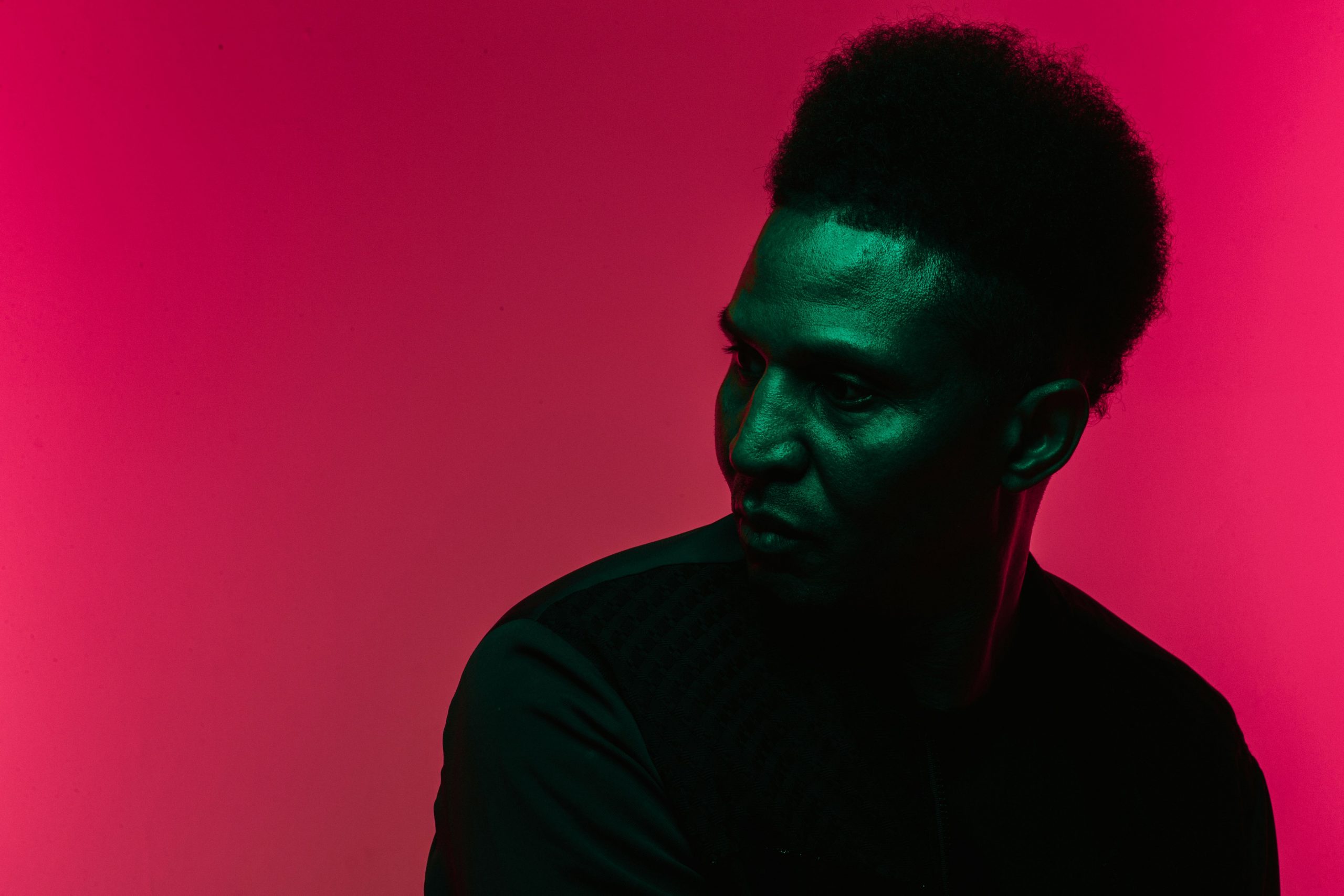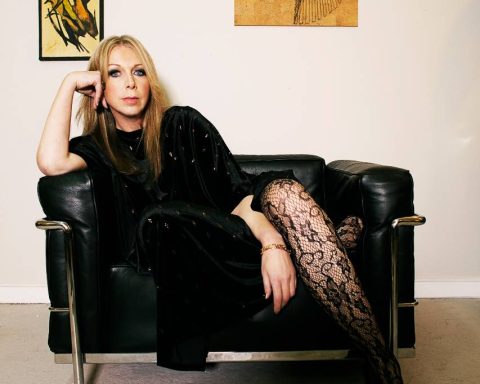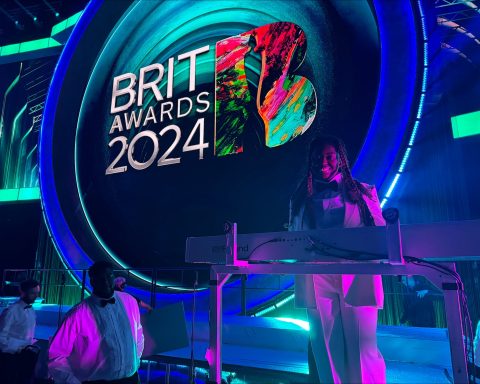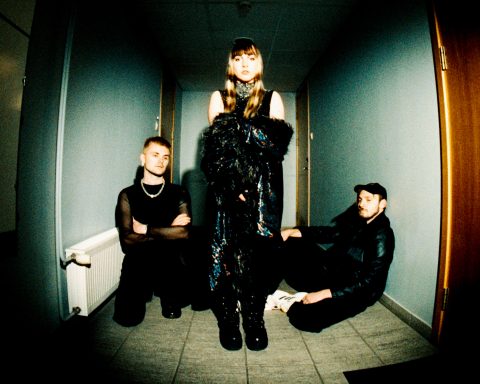The Edge of Everything is the first full-length album by Krust (aka Kirk Thompson) in fourteen years. But that doesn’t mean he hasn’t been busy. Between consultancy firm Disruptive Patterns, CBD oil company Amma Life, and music, Krust is a serial entrepreneur. Like his art, he is an object in constant motion.
Reactions to Krust’s musical return are glowing. Pitchfork says, “The Edge of Everything proves that drum and bass can still wield an awesome experimental power.” MOJO praises Krust’s “future-focused, synth-heavy, sci-fi opus that hits a celestial climax.”
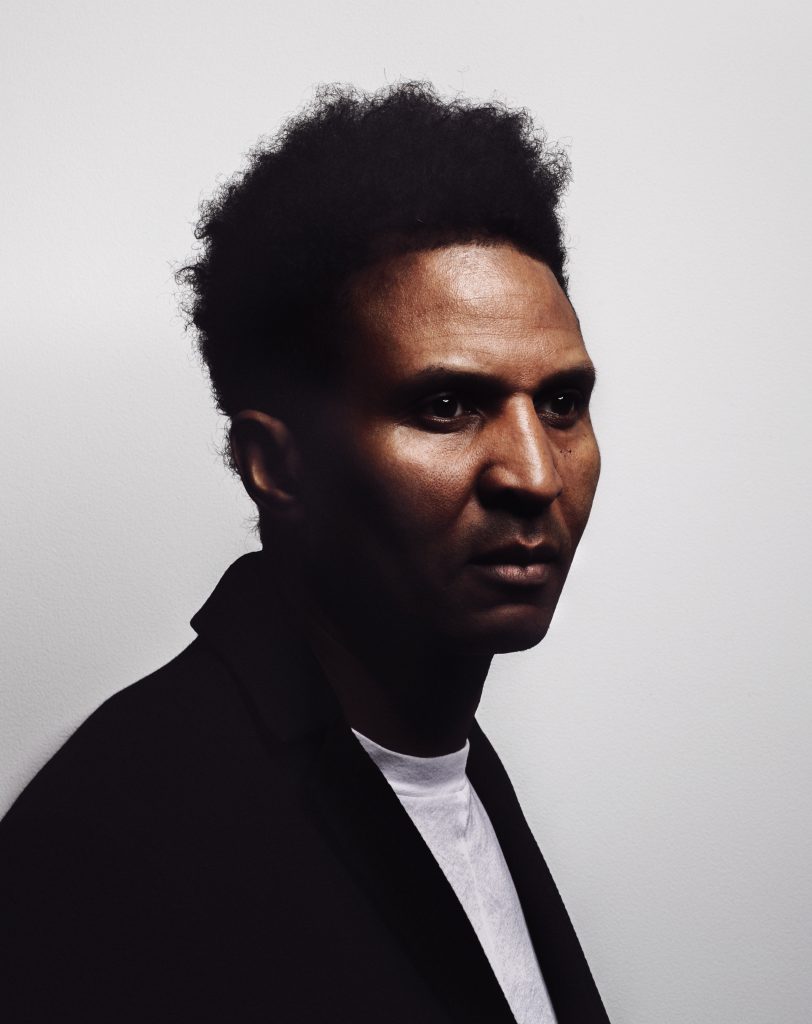
Bristol Beginnings
2020 is clearly the right moment for these sounds. but Krust’s music is timeless. Tracks like “Warhead” and “Soul in Motion” are genre-defining classics. However, before all that, Kris grew up in Bristol’s Knowle West council estate.
“It was working class,” Krust explains, speaking from his UK home. “Tony Blair famously said it was the worst council estate in Europe. “Thanks, mate,” he laughs. “That’s where I grew up.”
Certainly, it wasn’t a diverse environment, and prejudice lurked in the background. “There were eleven Black kids there. Although I experienced racism on a daily basis, overall, it was quite a positive experience.”
Council Estate Lessons
By the same token, the lessons Krust took away from Knowle West would help him down the line. “I learned a lot about real life there. Not the superficial lifestyle I’ve experienced in the music business. I learned how to read body language, things that helped when I traveled around the world.”
It definitely wasn’t an easy time to be growing up in the UK. “That’s where I get my sensibilities. The era I was born in and the general depression of the country.” In spite of this, Bristol—home to Massive Attack, Portishead, and Tricky—retains a romantic appeal. The mythic Wild Bunch sound system and collective shaped Krust’s development.
"We were pioneers of pushing buttons, sitting in dark rooms with computers, trying to figure out how to do it."
Wild Style and a Wild Bunch
“When I was 14. I saw a film called Wild Style, and that changed my life,” he recalls. “A friend of ours had contact with the Wild Bunch and he’d get these tapes of DJ Red Alert and DJ Cool Herc. We huddled around listening to them scratching in Britain.”
Eventually, a young Krust got to see the action in person. “We were like 16, 17 years old. It blew our heads to pieces. 3D and Nick Walker would be spraying on the wall. You’d have breakdancers and then the Wild Bunch cutting and scratching.”
The cumulative effect was pivotal for Krust and his crew. “All a sudden, there’s a signal in the form of this VHS tape. You saw people in the same situation on the other side of the world, but they made something out of it.”
The direction became clear. “Once we saw that, we grabbed hold of it. We could scratch, we could rap, and we could DJ. We could be B-boys, and we could be something.”
Under those circumstances, a young Krust gravitated to music-making, attacking it with a passion. “I spent three years sleeping on my brother’s floor, hassling him to teach me how to use a sampler. When he finally did, that was it.”
"You saw people in the same situation on the other side of the world, but they made something out of it."
Not to mention, being a musician wasn’t considered a viable career path. “Few people were making music back then—few people could. We were pioneers of pushing buttons, sitting in dark rooms with computers, trying to figure out how to do it.”
Blood Brothers
Alongside his contemporary Roni Size, Krust defined the jungle and drum and bass genres. Between the Full Cycle label and Mercury Prize-winning Reprazent, the pair were tight. “We’ve become blood brothers of sorts. We went through so much of the early stages together. The hardest thing I ever did was leave Full Cycle. That was like getting a divorce.”
Ultimately, the social challenges of the moment were key factors in Krust’s musical growth. “We were reflecting the harshness of the environment. Money was hard to come by and partying took the edge off. We didn’t even need to get paid, just enough to keep buying Jacket Potatoes. It gradually turned into other things.”
Looking Back
With a discography containing over 100 releases, picking highlights is a challenge. Nevertheless, certain tracks stand out. “‘Jazz Note’ opened the door,” says Krust decisively. “It was a sound no one was making. Now they call it ‘liquid funk,’ but I was trying to reflect the jazz things we were listening to and the techno sound.”
His futurist approach turned heads. As a matter of fact, a certain song even penetrated the mainstream. “‘Warhead’ is my biggest commercial success,” he says. “It changed the way people viewed me as an artist. That changed my life, changed my game, changed the game. It rewrote the book on what a jungle tune could be.”
From there, his prolific output diversified into many threads. “I’d have to switch to the widescreen era—‘Soul in Motion,’ ‘True Stories,’ the Genetic Manipulation EP.” At that point, Krust’s sound began to channel soundtracks, a shift that continues through his latest album.
"We were reflecting the harshness of the environment. Money was hard to come by and partying took the edge off."
Future is Everything
The Edge of Everything has the cinematic textures, skittering beats, and syncopation for which Krust is famous. At the same time, the record also contains some less familiar elements. For example, witness the political spoken word segments in “7 Known Truths” or the dramatic scene changes of album closer, “Only God Can Tell.”
Krust stresses that a sense of tension always existed in his music. “Frustrations of youth, frustrations at being left out of the system, frustrations of being always singled out, frustrations of not being white enough, educated enough, rich enough.”
Starting Again
Indeed, pushing against an indifferent and oppressive system is what inspired Krust and his peers back in the ’90s. With this in mind, 2020 seems an opportune moment to drop a new release. Krust explains how the album process began this time around.
“Me and Roni started Full Cycle again and I said, ‘I’m going to make a 12-inch. Then it turned into an EP and finally an album. I asked myself, ‘Do you think coming out after so long with an EP is going to satisfy your audience? Is going to satisfy you?’”
Of course, crafting a full-length album of this scope after a decade and a half requires laser focus. Coupled with precision, patience is an attribute Krust must possess in great supply.
“What’s the journey you want to take people on?” he asks. “It’s not going to happen in twenty-five minutes. I need an hour minimum.” The incubation period was similarly lengthy. “It was six years in the making,” Krust reveals. “Two years of research, of looking for the right sounds, the right equipment.”
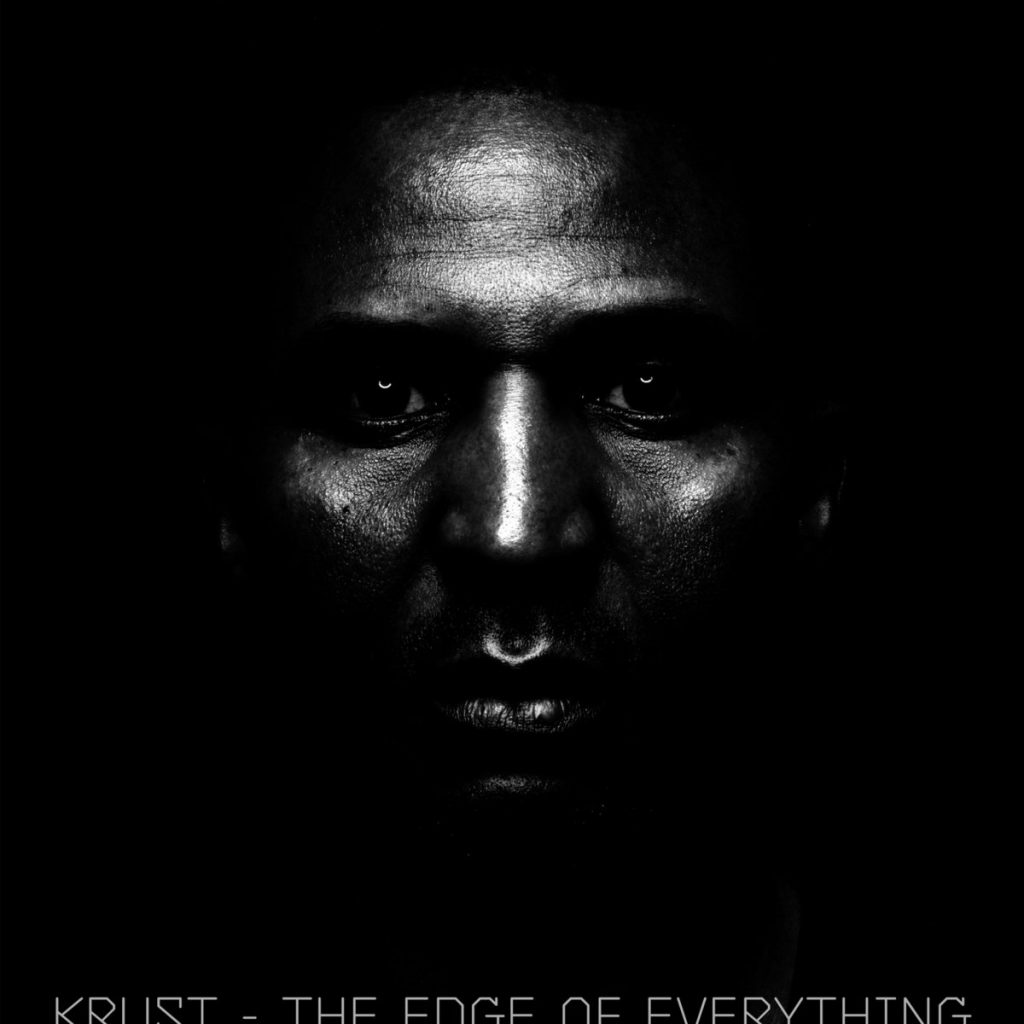
"I love technology and new techniques. I’ve got my eyes and ears open about what the future brings. Period."
Analog + Digital
Krust acknowledges he created his earlier releases at a different time in history. “I’m from the analog era, so I learned how to put stuff through pedals, degrade samples,” he explains. “Now, I needed to keep my authentic sound but translate it into the digital realm.”
To that end, he used Pro Tools and Ableton Live as DAWs. Then, Krust went on to integrate soft synths like Roland Cloud‘s SYSTEM-100 as he built sonic palettes. Next, Krust embarked on a “deep exploration of the sounds and techniques” to create the album.
“Once I’ve got a certain sound I’m keying into, I’ll use that as my jumping-off point. I’ll do that for months, experimenting.” The results contained the genesis of The Edge of Everything. “I never try and finish a song,” he elaborates. “Instead, I create loads of sixteen, twenty, thirty-two bar loops and make them as dense as possible.”
Cinematic Flair
At that point, Krust’s appreciation of cinema began to inform the music, namely a few revered directors. “What I’m trying to do is like Christopher Nolan’s nonlinear approach to filmmaking. I’ve always had a fascination with Spike Lee. You could tell someone was on a roller, pulling you towards the camera.”
"When I need to, I can drop into the character of Krust to create a piece of art. It's a work in progress."
Certain visual techniques specifically influenced his creative process. “Some films are black and white, except for a bit of color. A drop of blood in Scorsese’s Raging Bull or the fish in Coppola’s Rumblefish.”
Striving for Balance
Given Krust’s artistic intensity, what was normal life like between his last releases? “It wasn’t like back in the day when I would eat, sleep, and drink beats. I’ve got a young family now.” In other words, there was some soul-searching. “Those years were me discovering who Kirk Thompson was. I’d lost that guy. I was so deep in the music, I believed Krust was a real person.”
Nowadays, he maintains a sense of balance. “When I need to, I can drop into the character of Krust to create a piece of art. Then I can go home and be K for my wife. It’s a work in progress. I’m not there yet.”
A restless creative, what’s happening outside the music world is undeniably what inspires Krust. “I’m more interested in culture and technology and the future. Right now, I’m fascinated by AI and machine learning.”
In short, excitement about the future is what keeps Krust energized. “I’m a geek who loves technology and new techniques. I’ve got my eyes and ears open about what the future brings. Period.”

